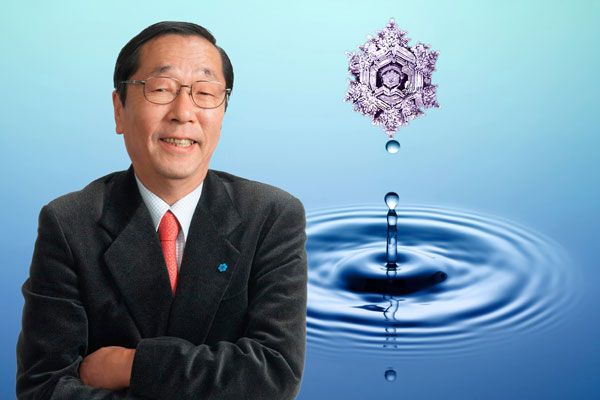What Are You Thinking?
Our thoughts create our reality, we know that – what we pay attention to tends to manifest, yet our words are also critical. Of course, they are intertwined and the combination of words and thoughts can be powerful.
I’m sure you’ve heard of Dr Emoto who did the ‘rice experiment’ (following on from his much-documented water experiment). He put rice into three glasses and ‘spoke’ to each, to the first he states, ‘Thank You’, to the second ‘You’re an idiot’, and he ignored the third.
You can guess the results of course, the first one fermented and gave a pleasant smell, the one that had been told it was an ‘idiot’ turned black, and the third that had been ignored began to rot.
They videoed the experiment and Dr Emoto used the example to explain how important our words are, especially in how we treat children. He suggests that indifference does the most harm, even more than negative words, and of course positive words create the most abundance. Literally the power of positivity at work.
“If you have a peaceful mind and peaceful thoughts, water becomes more peaceful.” – Dr. Emoto
None of this is news to you I’m sure, we know about mindset, we know about the power of our words and our thoughts, and I have many times sung the praises of the excellent book by Andrea Gardner ‘Change Your Words Change Your World’.
Also, I saw recently that there is a new edition of ‘Yes! 50 Secrets from The Science of Persuasion’ It’s all about how the right ‘language’ can influence us. The promotion for the book says:
Most of us are only too aware that, whatever roles we have in today’s fast-moving world, much of our success lies in getting others to say ‘Yes’ to our requests. What many people might not be aware of, though, is the vast amount of research that has been conducted on the influence process. What factors cause one person to say ‘Yes’ to the request of another? Yes! is full of practical tips based on recent academic research that shows how the psychology of persuasion can provide valuable insights for anyone interested in improving their ability to persuade others – whether in the workplace, at home or even on the internet.
There are some great examples that make this point, one of the authors Steve Martin studied the way most people think, and looked at how the findings could result in effective business strategy. He found that a compelling human motivation is to ‘fall in with the crowd’ to do as others do, and when he advised companies to use this type of persuasion they saw great results.
I read that HMRC used to send letters to tax payers warning of fines and the dire consequences of late payment. When they tweaked their message to include a phrase along the lines of ’nine out of ten people in the UK are honest and pay their taxes on time’ they saw an immediate increase in taxes paid on time!
I’m sure you have seen an asterix by a dessert on a restaurant menu, saying ‘*this is our most popular dessert’ and if you are sourcing a hotel you may see ’90 per cent of visitors say they would recommend this hotel to a friend…or similar – it’s persuasive language.
We like positive messages, and we like to be just like everyone else!
Anyone who has studied NLP will know about persuasive language, how we shape the way we phrase our questions, requests, statements will have a direct impact on how ‘successful’ we are.
We all know about powerful selling tactics, and how pitching up to someone saying – ‘Why don’t you buy my programme it’s great’, is unlikely to work. More and more in this ‘content led’ culture we need to make connections, and engage and communicate with people before we try and persuade them to work with us and buy our products et al. Remember…people do business with those they like know and trust.
Put some thought and effort into how you communicate, what words you use to convey your key messages. What are the words that define your message… your work…your brand? What words are you using in your relationships that might be passing on exactly the wrong message?
So, here’s a few sayings, well-chosen words, clichés perhaps …but worth remembering:
You are the brand
Your thoughts create your reality
You can use persuasive language to achieve your desired outcome
Changing your words can change your world
Positive words will generate the most abundance
Feel free to add to the list any of your own (positive) words…
‘If I had only one dollar left I’d spend it on marketing’ (Bill Gates)
I can help you get your message across and communicate in the right way for you, your business, and your brand. My new online program has just launched.
‘How to Market Yourself Personally and Professionally’ is a fully downloadable 12-part step-by-step video training with downloadable workbooks to teach you how to become your own best PR, and get You and Your Brand Seen Heard and Sold in the modern marketplace.



